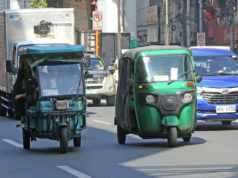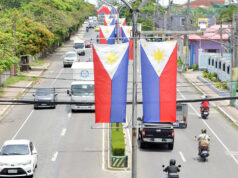It is sad that the Masungi Georeserve in Baras, Rizal is now the subject of controversy, considering its operator’s effort to reforest hundreds of hectares in the Sierra Madre range. The private company running the popular eco-tourism park has also been helping protect the Upper Marikina watershed against quarrying and logging, to help mitigate flooding in Metro Manila.
There is no law prohibiting the Department of Environment and Natural Resources (DENR) from asking for private sector help in reforestation and conservation efforts. After all, not just the State but all of us have the responsibility to protect the environment. However, soliciting private sector support in this regard can become problematic if not done right.
The DENR first ceded control over the Masungi Georeserve, a conservation area of about 300 hectares, to a private group maybe about six years ago. An eco-tourism park for public use started operating in the area in 2015. In 2017, the private group was said to have signed a Memorandum of Agreement (MoA) with then DENR Secretary Gina Lopez for conservation efforts to reportedly cover 2,700 hectares. That’s about the size of the City of Makati.
The Georeserve has become very popular since then, particularly among conservationists, and local and foreign tourists. In the area are caves, stalactite and stalagmite formations, limestone peaks, and rainforests. Masungi is also said to host a large selection of flora and fauna including a cycad (palm-like plant) endemic to Luzon, and a new subspecies of microsnail that lives only on its limestone boulders.
Despite the laudable intention of DENR, I am unsure how it can actually cede control, authority, and management over 2,700 hectares of public land to a private entity just on the basis of a Memorandum of Agreement, with benefits and proceeds from the “use” of that land seemingly going only to the private group. And, all in exchange for reforesting the area and guarding it from loggers and poachers?
Also, the area turned over to the private sector reportedly includes the Upper Marikina River Basin Protected Landscape, which I believe should always remain under government control. It also reportedly includes a portion of land said to be claimed by Dumagats of Antipolo as their Ancestral Domain. If only for these, and given the sheer size of public land involved, I think the DENR MoA deserves scrutiny and thorough review.
Also requiring scrutiny is how DENR has exercised oversight in Masungi since 2017, and whether the interest of the government, and, more importantly, the public, is protected by said MoA. No private group or interest should be accorded undue accommodation or advantage even in conservation efforts. After all, the responsibility of protecting forests and forest lands should not be a source of profit or advantage for anyone.
There should also be clear parameters for the DENR to “measure” whether the MoA, the continued control over the area by a private group since 2017, and all conservation efforts to date, have actually benefited Masungi and have contributed to either reversing environmental damage or contributed significantly to environmental repair and sustainable management of resources. This measure should not be based simply on the number of trees planted, or size of area reforested.
Moreover, there should be clear accounting of how much the private group makes from the operation of the Georeserve and where these earnings are spent; if taxes are being paid, if any are due; and how local and foreign donations, if any, have been spent and how these have actually contributed to conservation effort. Again, environmental protection and conservation efforts — on behalf of the government, and on government land — should not profit any private group.
A number of arguments have been raised publicly for and against the continued control by a private entity of the Masungi Georeserve. Like I said, I am not against the concept, provided it is done on the up and up. The entire process should be legal, transparent, and accountable. More important, it should not disadvantage anyone, nor provide undue advantage to its proponents.
For one, the rights of the Dumagats over their Ancestral Domain must be respected.
Two, the government should always retain authority and control over the management of protected areas; and that the private sector is only its extension.
Three, DENR should always exercise effective oversight to ensure that government interests are protected.
Four, there should always be transparency and clear accountability as to who should do what.
And five, all “profits” from the allowable “use” of the land — net of justified expenses — should go to the government and must be earmarked for conservation efforts.
Another issue is why Masungi Georeserve has been allowed to operate as an eco-tourism park? If the intention is conservation, and the effort is reforestation, then shouldn’t we keep the area pristine by keeping people out rather than inviting them in?
Reforest the area, then guard it against logging. End of story. There are many other places that can be turned into “nature parks” for tourists. Why do it in an important watershed area like Masungi?
In this line, maybe Congress can also consider creating a National Park Service like in the United States, which can be placed under the DENR. This agency can manage national parks and wildlife and forest reserves, and other conservation areas. And, as the agency implements conservation efforts, it can also operate some areas as eco-tourism parks for public use and enjoyment. All “profits” from such operations go to the government, to pay for the maintenance of these parks.
Without such an agency, and given DENR’s broad mandate and limited resources, the government will have to continue relying on private sector help and support for many of its conservation efforts. But, unless the rules are very clear, and the process clearly transparent and accountable, the government might again find itself troubled, like in the case of Masungi.
Marvin Tort is a former managing editor of BusinessWorld, and a former chairman of the Philippines Press Council



